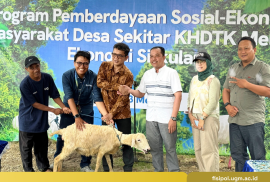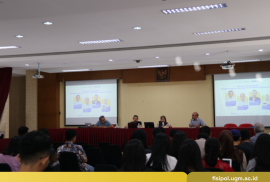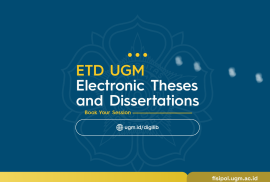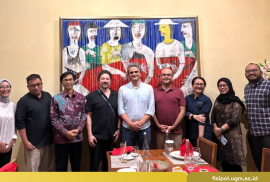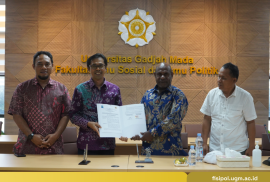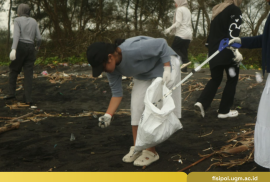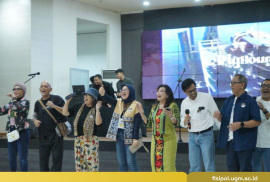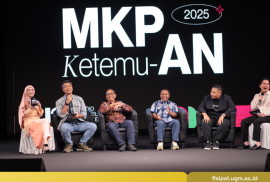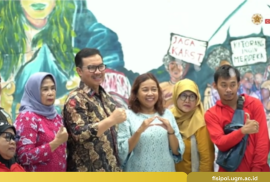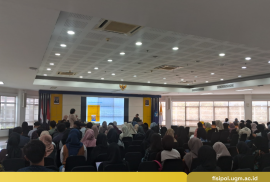Blora, May 23, 2025—UGM’s Faculty of Social and Political Science (Fisipol) has successfully organized a closing ceremonial event for the socio–economic empowerment program for village communities around forest areas with special-purpose (KHDTK). It is done through the lens of circular economy at the second location, Mendenrenjo Village, Blora Regency on Friday (23/5). This event also marks the official end of the program that has been ongoing for five months since January 2025.
Arie Sujito, as Vice Rector for Student Affairs, Community Service, and Alumni of UGM, attended the ceremony and mentioned that,”The activities carried out all this time are aimed at increasing the quality of life of communities together. It is hoped that this cooperation between villages and groups is important in reducing the rate of poverty by empowering communities.”

